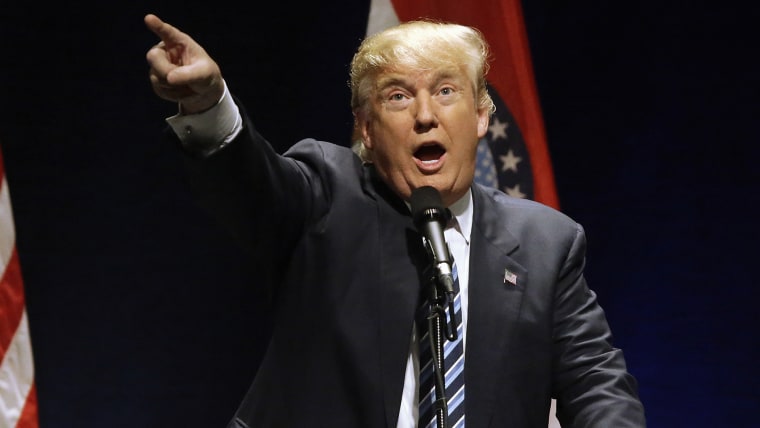Last summer, as Donald Trump's presidential campaign was just starting to gain a following, the New York Republican said the Affordable Care Act has "got to go." Trump added, however, that he wouldn't just scrap "Obamacare" and return to the old system.
Instead, he said, a Trump administration would "repeal and replace" the ACA "with something terrific."
That was about as detailed a policy prescription as the Republican candidate was prepared to offer at the time, but that changed two weeks ago when the Trump campaign finally got around to unveiling a health care blueprint. Is it "something terrific"? Alas, no. The Huffington Post's Jonathan Cohn reported yesterday:
Donald Trump likes to say he's different from other Republicans -- that he wouldn't let people die in the streets because they don't have health care. Trump is lying. And a new report shows it. The report, which the nonpartisan Committee for a Responsible Federal Budget released on Monday, is the first formal effort to assess the impact of Trump's ideas for repealing and replacing the Affordable Care Act. That impact, according to the Center's analysis, would be devastating.
The Trump campaign's document is available online here, while the Committee for a Responsible Federal Budget's report is posted here.
Given what we know about the GOP candidate, many Americans probably wouldn't expect much from his health care policy, but it's probably fair to say Trump's plan falls short of low expectations. Not only would his plan take coverage away from roughly 20 million people, it would also raise the deficit by hundreds of billions of dollars.
In other words, we're talking about a policy that costs more and does less than the ACA system.
Cohn's piece emphasized that these are rough estimates, largely because Trump's "plan," such as it is, bears a closer resemblance to "a set of talking points than a detailed proposal from which analysts could make a firm projection."
For all the bluster about Trump being a new kind of candidate, it turns out that his post-policy attitudes are eerily familiar. Congressional Republicans have spent years failing to put forward a credible health care plan of their own, preferring instead to throw around vague, pleasant-sounding goals, and now the GOP frontrunner is reading from the exact same script.
Among health care wonks, discussions about Republican reform plans tend to focus on their predictable and inadequate pillars -- tax breaks, buying across state lines, Medicaid block grants, health-savings accounts -- which don't amount to much of anything, and would produce a far worse system than the status quo.
And what are the main provisions of Team Trump's plan? Tax breaks, buying across state lines, Medicaid block grants, and health-savings accounts.
When media critics take aim at coverage of the presidential campaign, they raise familiar concerns that have been common for years: news organizations should focus more on candidates' policy proposals and less on polls, gaffes, and tactics. The horse race, the argument goes, is far less important than what the candidates intend to do once in office.
But Donald Trump's health care "plan" is a reminder of how difficult it is to give real, substantive scrutiny to the Republican candidates' policy platforms -- because they tend not to have policy platforms. GOP presidential hopefuls have positions on issues, some of which are coherent and some of which aren't, but Trump and his rivals make very little effort to offer voters detailed agendas.
Maybe they assume the Republican base won't care, maybe they don't want to invite criticism, maybe they don't take policy seriously enough to care.
